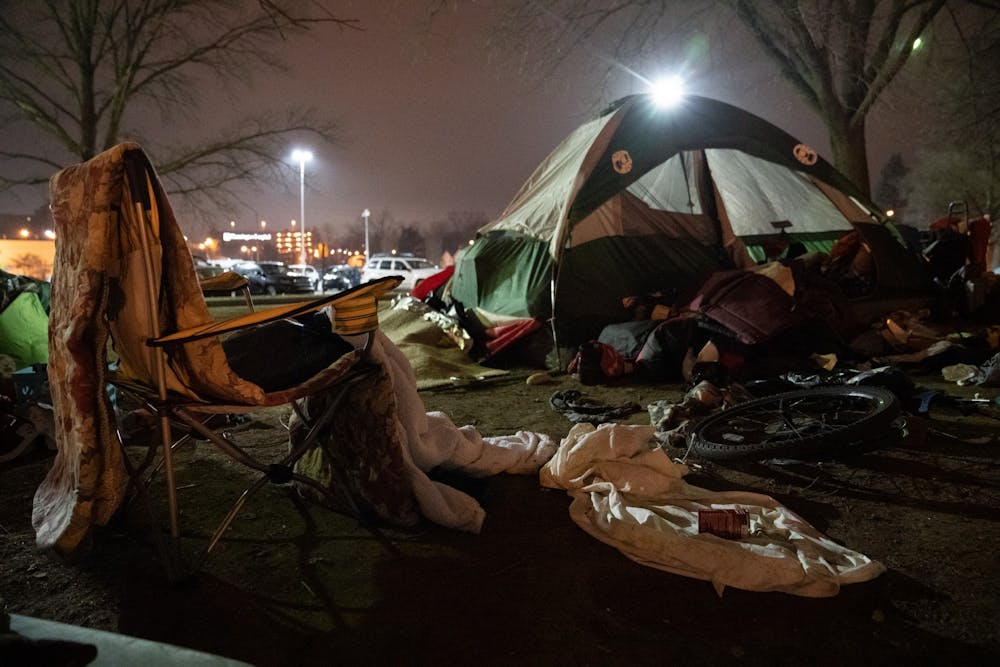The Bloomington City Council unanimously approved a rezoning petition from a 1.31-acre property Wheeler Mission Ministries owns. The approval would allow Wheeler to offer additional services to people experiencing homelessness.
The property, located at 215 S. Westplex Ave. contains three buildings. Wheeler Mission had recently purchased the middle building to expand the services they could offer, including providing shelter, temporary housing, career aid and other services.
The petition initially received mixed feelings from the council in an Oct. 6 meeting. In response, Wheeler’s director Dana Jones said he met with local businesses to address their growing concerns of the homeless population in the area.
Mainly, nearby businesses were concerned with intoxicated, homeless individuals that harass the businesses, who weren’t permitted on the property near Wheeler Mission, and who weren’t able to be relocated by police since they hadn’t committed any crimes. In the Oct. 6 meeting, council members requested Jones provide recent data on how often the police are called to the property.
Although Wheeler’s rezoning petition received more support than when it was first considered, some council members were still concerned with the frequency of police arriving at the property responding to calls.
There were 34 calls to the property in 2016, increasing to 424 in 2019 before dropping off to 259 in 2020. Despite this, Jones said his meeting with local businesses went well, explaining although the not-for-profit organization provides services for homeless individuals, they aren’t entirely responsible for their actions.
Councilmember Dave Rollo agreed with Jones’s assessment and said Wheeler isn’t fully responsible, and some responsibility is on the city.
Councilmembers Sue Sgambelluri and Susan Sandberg supported the ordinance, saying that whether the council approves or denies the ordinance will have little effect on the issues present. Sgambelurri said the rezoning approval would not worsen the harassment the businesses experience from the local homeless population.
“What’s before us is a zoning decision, and the behaviors that have created concern, rightfully so, are unacceptable in either of these zonings, regardless of which zoning we put,” Sgambelluri said.




